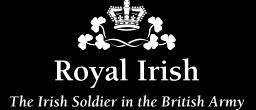Explore Listing
Popularly known as the SLR, the correct name for this British made rifle was the L1A1.
First produced in 1954 it was only phased out of use in the British Army in the late 1980s, being replaced by the SA80. Its reliability and robustness combined with a 7.62mm calibre bullet that reloaded itself from a gas operated twenty or thirty round magazine made it a formidable weapon in trained hands.
It was used in the Malayan Emergency, the Vietnam War, the Northern Ireland Troubles, the Falklands War and the Gulf War.
In the 1960s, the Royal Ulster Constabulary identified a requirement for an armoured car to provide protection mainly in border areas. A vehicle was designed by Short Brothers and Harland (hence Shorland) based on the long-wheelbase Land Rover. Weighing approximately 3,300kg it was armed initially with a Browning .30-inch calibre machine gun and later a 7.62mm General Purpose Machine Gun (GPMG). It had an armoured body that could provide the crew of three with protection from small arms fire, shrapnel and explosive devices.
Stationed near Cawnpore in Uttar Pradesh, the 87th Prince's Own Regiment was sent as part of a force to engage Rajah Dya Ram. The Rajah’s fortress was at Hattrass [Hathras], near Agra, and the British force was commanded by Major General Sir Dyson Marshall. The Rajah was one of the few remaining independent rulers resisting the British merger of Northern India's princely states into Presidencies - the administrative states formed by British rule.
 The Treaty of Peace concluding the Great War in Europe was signed by the Allied and Associated Powers and Germany in the Hall of Mirrors at the Palace of Versailles on 28 June 1919.
The Treaty of Peace concluding the Great War in Europe was signed by the Allied and Associated Powers and Germany in the Hall of Mirrors at the Palace of Versailles on 28 June 1919.
_'I went my rounds yesterday in the evening. Such a time I have never had! Imagine going along a trench just wide enough for your shoulders; your head up to the original level of the ground, and the earth piled up on either side for two or three feet; the bottom was soft mud with water well above the knees. One sank into this whilst one struggled on, carrying revolver or rifle. In my case, revolver strapped on, and holding up my cloak to prevent it getting under my feet in my dreadful flounders. Several times I nearly stuck for good, but just managed to get through.
On 12 November 1969, the Minister of Defence for Administration (Mr Roy Hattersley) made a statement to the House of Commons in which he said:
'The Hunt Committee recommended that the Royal Ulster Constabulary should be relieved of all military duties and that the Ulster Special Constabulary should be replaced by two separate forces - one a police reserve, the other a military force to assist the regular Armed Forces.
The following is an eye witness account.
——————————————————————————————————————
In 1985, the part time companies of the 11th Battalion The Ulster Defence Regiment were attending the normal annual camp, which was at the Lydd and Hythe range complex that particular year.
The London Gazette, published on 5 February 1856, included details of the Royal Warrant signed by Queen Victoria on 29 January 1856 and stated in the preamble:
THE Queen has been pleased, by an instrument
under Her Royal Sign Manual, of which the
following is a copy, to institute and create a new
Naval and Military Decoration, to be styled and
designated "The Victoria Cross," and to make
the rules and regulations therein set forth under
which the said Decoration shall be conferred.
The Williamite War, or The War of The Two Kings (Cogadh an Dá Rí), was the conflict waged in Ireland in the late 17th Century between the Jacobite supporters of King James II and those who supported the claim of William, Prince of Orange (James's nephew and son-in-law through marriage to James's daughter, Mary) to the thrones of England, Scotland and Ireland.
The Waterloo Medal awarded to Ensign John Ditmas of the 1st Battalion 27th Regiment of Foot.
The obverse of the medal has a profile of the Prince Regent and on the reverse shows a seated figure of Victory below which is inscribed 'WATERLOO' and 'JUNE18TH 1815'. The medal hangs from the underside of a small frame made from wood taken from York Minster following a fire on 20 May 1840.
This medal was presented to the Inniskillings Museum by the great granddaughter of Ensign Ditmas.





